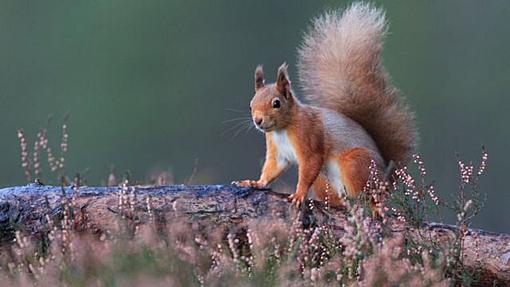The government is expected to announce a legally binding target by 2030 to push for action to halt the decline in nature and wildlife.In addition, Environment Minister George Eustice will draft a plan for the agency to introduce animals such as wild cats to Britain and send beavers back to new areas of the country.And he will reaffirm his intention to restore more peatlands and forests.Nature groups have long been pushing for stronger environmental laws In a speech from the Delamere Forest in Cheshire, Eustice is expected to say: "We will revise environmental laws to set additional legally binding targets for life by 2030 with the aim of halt the decline of nature.
It is thought that the เกม slotxo legally binding targets would only apply to the UK, with the developed authorities able to formulate their own policies.Mr Eustice would describe the move as "A big step forward", adding: "We hope this will be equivalent to a net zero for nature, encouraging the action of the scale needed to address the biodiversity crisis.The wildlife group welcomed the proposal as a "milestone".Richard Benwell, CEO of Wildlife and Countryside Link, a coalition of 57 nature groups, said: "If the legal details are correct and the goals are comprehensive and scientifically based, this could inspire the investment and action needed to protect and restore and protect the environment.
Wildlife after a century of decadence Mr Eustice is also expected to confirm a proposal to restore the peatlands in England.The measure will include a 2024 ban on sales of peat products by the end of Congress, under consultation and funding to restore 35,000 hectares (86,000 acres) of degraded peatlands in England over the next four years.Only a fifth of Britain's 2.6 million hectares (6.4 million acres) of peat is in good condition.Estimates suggest that habitats, which range from upland pastures to fertile agricultural lowlands, can emit up to 23 million tonnes of carbon a year.In contrast, healthy peatlands store carbon and provide habitat for plants and animals.
Wildlife Trusts chief executive Craig Bennett said the government's primary goal of restoring 35,000 hectares of peat was disappointing and called for a commitment to restore all of the upland peatlands and at least a quarter of the peat. Lowland He said: "It is imperative that we stop the decline of nature and restore 30% of land and sea by 2030. This will help wildlife fight back and restore habitats. And can store carbon again Wildlife Trusts said it could be "embarrassing" for Britain as it hosts a major climate summit in Glasgow in November to keep carbon-rich peat cheaper. "Dig up and sell" Peatland is important for carbon sequestration and for wildlife, and we are now wrapping it in plastic and selling it in garden centers," said Elliot Chapman-Jones.
The government is announcing new tree actions aimed at raising the rate of tree planting in England to 7,000 hectares (17.3 acres) of new forest per year by 2024.In addition, there will be funding to incentivize landowners and farmers to plant and manage trees, and at least three community forests will be built.Abi Bunker, Woodland Trust's director of conservation and external affairs, said Britain's forest land has almost tripled since 1900, but the increase was mostly low-diversity reforestation.Indigenous wood and trees are fragmented, vulnerable to development and too many are in poor condition, with half of the UK's wildlife and plant species dependent on forests declining," she said.




 LinkBack URL
LinkBack URL About LinkBacks
About LinkBacks

 Reply With Quote
Reply With Quote